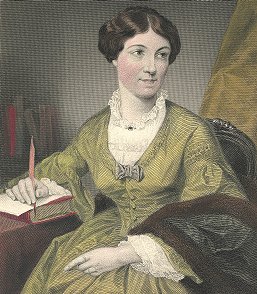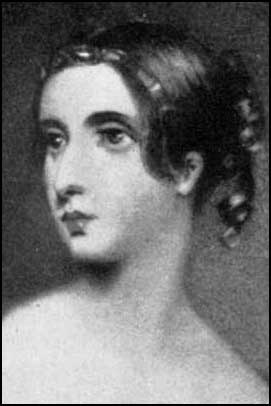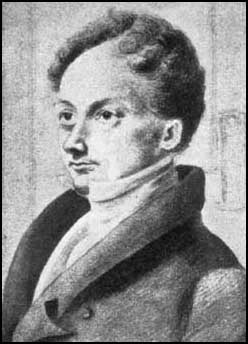Internal
Links
Top
|
Outline on John
Stewart Mill
1806 - 1873
|
|
External
Links
|
|
Link
|
- Biography & Major Works |
|
| |
INTRODUCTION |
|
| |
John Stuart Mill ( JSM ) was a British philosopher, a political economist,
a Member of Parliament & an influential liberal thinker |
|
| |
JSM was an advocate of utilitarianism, the economic ethical
theory that was systematized by his godfather, Jeremy Bentham, but
adapted to German romanticism in such a way that it became a practical
guide to everyday living |
|
| |
Mill & Jeremy Bentham led the “Philosophic Radicals,” who advocated
the rationalization of the law & legal institutions, universal male
suffrage, the use of economic theory in political decision making, &
a politics oriented by human happiness rather than natural rights or conservatism |
|
| |
Mill embraced the secular, scientific view of the Enlightenment in
hat anything that we can know about human minds & wills comes from
treating them as part of the causal order investigated by the sciences,
rather than as special entities that lie outside it |
|
| |
MILL'S THEORY OF LIBERTY |
|
| |
In On Liberty, Mill explores the nature & limits of the
power
that can be legitimately exercised by society over the individual |
|
| |
Mill develops the concept of the harm principle which states
that each individual has the right to act as he wants, so long as these
actions do not harm others |
|
| |
Under the harm principle if an act only directly affects the person
undertaking the action, then society has no right to intervene even if
it is believed that the actor is harming himself |
|
| |
An action could not be restricted because it violated the conventions
or morals of a given society |
|
| |
The only reason that justifies on interfering w/ the liberty of any
other is self protection |
|
| |
The only purpose society can exercise power other another is
to prevent harm to others |
|
| |
Children, those living in "backward states of society," etc. are exempt
from the harm principle because they are incapable of self govt |
|
|
|
Harm could encompass the failure to act in that failing to rescue
a child could cause harm to society |
|
| |
One of his more controversial points was that individuals could engage
in work for an employer under unsafe working conditions if the worker does
so based on their own free will, thus ignoring Marx's et al's point of
view that workers may have little choice in the matter if all they have
to sell is their labor |
|
| |
On the other hand, a worker could not be forced into slavery, or even
sell themself into slavery |
|
| |
Free discourse is a necessary condition for intellectual &
social progress, & e can never be sure, he contends, that a silenced
opinion does not contain some element of the truth |
|
| |
Allowing people to air false opinions is productive for the
TWO reasons that: |
|
| |
a. individuals are more likely to abandon erroneous beliefs
if they are engaged in an open exchange of ideas |
|
| |
b. by forcing other individuals to re-examine &
re-affirm their beliefs in the process of debate, these beliefs are
kept from declining into mere dogma |
|
| |
It is not enough for Mill that one simply has an unexamined belief
that happens to be true; one must understand why the belief in question
is the true one |
|
| |
UTILITARIANISM |
|
| |
Utilitarianism is a philosophical mvmt centered upon the ethical
idea that the criterion of morality is attaining the greatest happiness
for the greatest number |
|
|
|
The principle of utility has a long history stretching back to the
writers of the 1700s w/ roots going further back to Hobbes, Locke, &
even to Epicurus |
|
|
|
Mill's "greatest happiness principle" holds that one must always
act so as to produce the greatest happiness for the greatest number of
people |
|
|
|
While Bentham treats all forms of happiness as equal, Mill developed
a system of the separation of pleasure into different qualitative groups
where intellectual & moral pleasures are superior to more physical
forms of pleasure |
|
| |
Centuries ago Epicurus had attacked the greatest happiness principle,
stating that if people were only about pursuing happiness, we were no better
than swine |
|
|
|
Mill responds to Epicurus by saying that he assumed that we are only
capable of the pleasure of swine, while in truth we are capable of higher
& lower pleasures, w/ higher pleasures including mental, aesthetic,
& moral pleasures |
|
| |
Mill distinguishes btwn "happiness" & "contentment," claiming
that the former is of higher value than the latter, a belief wittily encapsulated
in his statement that it is better to be Socrates dissatisfied than a fool
satisfied |
|
| |
Mill argues that the 'simple pleasures' tend to be preferred
by people who have no experience w/ high art, & are therefore not in
a proper position to judge |
|
| |
Mill supported legislation to grant extra voting power to graduates,
on the grounds that they were in a better position to judge what would
be best for society |
|
| |
Mill in no way devalued the uneducated as people, & he certainly
would have advocated sending the poor but talented to college because it
is the education, & not the intrinsic nature, of the educated
that Mill believed qualified them to have more influence in govt |
|
| |
Critics of utilitarianism noted the problem of schadenfreude where
if enough people hated another person sufficiently, it would be useful
for a utilitarian society to aid them in harming or eliminating the individual |
|
| |
Mill responded that this is the simple valuing of on individual over
another, & should not be permitted; only if one harms another, may
society act |
|
| |
Utility is to be conceived in relation to humankind "as a progressive
being," which includes the development & exercise of our rational capacities
as we strive to achieve a “higher mode of existence" |
|
| |
The rejection of censorship & paternalism is intended to provide
the necessary social conditions for the achievement of knowledge &
the greatest ability for the greatest number to develop & exercise
their deliberative & rational capacities |
|
| |
Utilitarianism offers a rational basis, an external standard
for moral behavior while intuitionism has no mechanism w/ which to adjudicate
differing moral claims, thus enabling people to ratify their own prejudices
as moral principles |
|
| |
ECONOMICS |
|
| |
Early on, Mill advocated only free mkts, but he later came to embrace
some limited regulation of the mkt & even later became known as being
'socialist oriented' |
|
| |
Mill accepted interventions in the economy, such as a tax on alcohol,
if there were sufficient utilitarian grounds, & he accepted the principle
of laws to regulate animal welfare |
|
| |
Mill believed firmly in the equality of taxation & opposed progressive
tax rates |
|
| |
SOCIAL PSYCHOLOGY & SOCIALIZATION |
|
| |
Much of Mill's ideas on social psych & socialization may be found
in his works on logic (i.e. A System of Logic, & An Examination
of Sir William Hamilton’s Philosophy) where he attacks intuitionist
a.k.a. a priori, views of knowledge by bolstering empiricist, a.k.a. associationist
or a posteriori views of knowledge |
|
| |
The intuitionist school emphasizes that in every act of thought, down
to the most elementary, there is an ingredient which is not given to the
mind through experience, but is contributed by the mind in virtue of its
inherent powers |
|
| |
For the intuitionists, experience is a product of the mind & thus
all true knowledge comes from the mind itself |
|
| |
Mill develops his social psychological view of empiricism in what he
calls the associationist view whereby elementary experiences of the mind
such as sight, sound, etc. are combined, i.e. associated, to socially construct
the more complex processes of the mind such as moral feelings, values,
etc. |
|
| |
Associationism attempts to explain a large variety of mental phenomena
on the basis of experience plus very few mental laws of association |
|
| |
One of the greatest strengths of associationism is that because our
beliefs & moral feelings are products of human social experience, humans
are capable of being radically re-shaped, that our natures, rather than
being fixed, are open to major alteration |
|
| |
The associationist doctrine places much greater emphasis on social
& political institutions like the family, the workplace, & the
state, than does the intuitionist doctrine that the nature of the mind
offers strong resistance to being shaped by experience (i.e. that the mind
molds experience rather than being molded by it). |
|
| |
Associationism suggests that if our experiences were to change, so
would our minds |
|
| |
Associationism thereby fits nicely into an agenda of reform, because
it suggests that many of the problems of individuals are explained by their
situations (and the associations that these situations promote) rather
than by some intrinsic feature of the mind. |
|
| |
When discussing human nature, reform intuitionism, & associationism
in his autobiography, Mill says:
| I have long felt that the prevailing tendency to regard
all the marked distinctions of human character as innate, and in the main
indelible, and to ignore the irresistible proofs that by far the greater
part of those differences, whether between individuals, races, or sexes,
are such as not only might but naturally would be produced by differences
in circumstances, is one of the chief hindrances to the rational treatment
of great social questions, and one of the greatest stumbling blocks to
human improvement. |
|
|
| |
In his discussion on utilitarianism, Mill notes that his critics raise
the objection that people are not motivated to support the general happiness,
only their own happiness |
|
| |
Mill responds to the charge that people are not motivated to promote
the general happiness of society, but only their own happiness by saying
that in most cases, following one's own needs, as long as they harm no
one else, w/o interference is sufficient |
|
| |
The pursuit of happiness of society, of the general welfare of society,
when it does conflict w/ individual needs, is a duty & we must look
at it in a Kantian manner in that true moral behavior is seen when I follow
a path that advances the needs of others, or of society, when it goes against
my own needs |
|
| |
Both Mill & Kant agree that duty, morality, the basis of society
is found in humanity's ability to sacrifice individual needs for the greater
good |
|
| |
THE SUBJECTION OF WOMEN |
|
| |
In The Subjection of Women, he compares the legal status of
women to the status of slaves & argues for equality in marriage &
under the law. |
|
| |
Mill notes that: |
|
| |
a. British women had fewer grounds for divorce than men |
|
| |
b. husbands controlled their wives personal property |
|
| |
c. children were the husband's |
|
| |
d. rape was impossible within a marriage |
|
| |
e. wives lacked crucial features of legal personhood,
since the husband was taken as the representative of the family thereby
eliminating the need for women's suffrage |
|
| |
The conditions of women which Mill & Taylor noted gives some indication
of how disturbing and/or ridiculous the idea of a marriage btwn equals,
which Mill & Taylor advocated & demonstrated, appeared to Victorians
of the time |
|
| |
Mill says:
| The principle which regulates the existing social
relations between the two sexes—the legal subordination of one sex to the
other—is wrong in itself, and now one of the chief hindrances to human
improvement; and that it ought to be replaced by a principle of perfect
equality, admitting no power or privilege on the one side, nor disability
on the other |
|
|
| |
Mill appeals to both the injustice of contemporary familial arrangements
& to the negative moral impact of those arrangements on the people
within them |
|
| |
The subordination of women negatively affects not only the women, but
also the men & children in the family in that: |
|
| |
a. subordination stunts the moral & intellectual development
of women by restricting their field of activities, pushing them either
into self sacrifice or into selfishness & pettiness |
|
| |
b. men, alternatively, either become brutal through their
relationships w/ women or turn away from projects of self improvement to
pursue the social "consideration" that women desire |
|
| |
c. children are treated as property & raised as either
oppressors or the oppressed |
|
| |
Mill's concern for the status of women dovetails with the rest of his
thought in that associationism, which claims that minds are created by
associative laws operating on experience implies that if we change the
experiences & upbringing of women & men, then their minds will
change |
|
| |
Mill's view on socialization & the malleability of the human character
enabled him to argue against those who tried to suggest that the subordination
of women to men reflected a natural order that women were by nature incapable
of equality w/ men |
|
| |
If many women were incapable of true friendship w/ noble men, says
Mill, that is not a result of their natures, but of their faulty environments |
|




